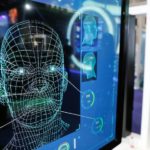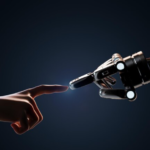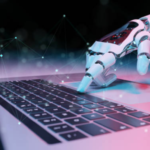UPDATE: A complete set of Māori ethics Treaty of Waitangi/Te Tiriti and Māori Ethics Guidelines for: AI, Algorithms, Data and IOT
This is the second in a series of articles I am writing about Māori ethics with AI, Data sovereignty and Robotics. Article 1 Māori cultural considerations with Artificial Intelligence and Robotics.
Background
My primary interest with digital eco system is to Indigenise the way developers think of systems and the impacts of traditional knowledge which includes Māori religious/spiritual beliefs, sciences and the environment. As a child I was heavily influenced by my elders who taught me traditional knowledge and customs. Much of which I had to choose very carefully when to use and share it. In today’s society, it is much more diverse and open to western Euro unorthodox thinking.
Māori are natural innovators with commercial acumen. As a result, the industry is seeing many Māori in the digital eco system now. Society has seen huge advancements in technology occur with no Māori Traditional Knowledge considerations or consultation. Increasingly it is Māori who are creating these systems with no knowledge or regard of the ethical impacts on Māori world and spirituality. Society has seen huge advancements in technology occur with no Māori Traditional Knowledge considerations or consultation. Increasingly it is Māori who are creating these systems with no knowledge or regard of the ethical impacts on Māori world.
Some ethical considerations
For Māori, ethics is about ‘tikanga’- for tikanga reflects our values, our beliefs and the way we view the world. (Te Puni Kokiri,1994). Often the terms Tikanga and Mātauranga Māori are interchanged. This essay uses the term Tikanga to encompass both terms.
Tikanga is a Māori custom, like common law that is founded on long accepted practices and traditional knowledge and religion; It does not preclude new circumstances and needs as they arise (Benton, Frame, Meredith, & Te Mātāhauariki, 2013). Tikanga recognises Māori data as a living treasure such as songs, proverbs and prayers; it is an inter-generational format (Black.T. 2019). Māori recognise that Māori Data contains a part of the people or natural environment that the Data is about, no matter how anonymized the data is (Taiuru, 2018).
There have been a small number of ethical frameworks developed specifically from a Māori perspective, such as Nga Tapa Wha (Durie, 1984) , Te Wheke (Pere, 2011) which are used for specific projects. General ethical concepts such as Whanaungatanga (Family values) and Kaitiakitanga (guardianship) will ensure an ethical approach to any Data project. But there is still a need for to co design a new Kaupapa Māori Frame works designed specifically for Data, AI and Robotics.
In addition to Tikanga, the New Zealand government have partnership obligations with Māori described in the Treaty of Waitangi. The Treaty recognises equal partnerships and the right for Māori to govern their own treasures (Orange & New Zealand. Department of Internal Affairs. Historical Publications, 1992).
New Zealand is also a signatory to The United Nations Declaration of Indigenous Rights. This deceleration recommends Indigenous Peoples have a number of rights in relation to data (UN, 2011).
The United Nations Declaration of Indigenous Rights Article 31 States:
Indigenous peoples have the right to maintain, control, protect and develop their cultural heritage, traditional knowledge and traditional cultural expressions, as well as the manifestations of their sciences, technologies and cultures, including human and genetic resources, seeds, medicines, knowledge of the properties of fauna and flora, oral traditions, literatures, designs, sports and traditional games and visual and performing arts. They also have the right to maintain, control, protect and develop their intellectual property over such cultural heritage, traditional knowledge, and traditional cultural expressions.
2. In conjunction with indigenous peoples, States shall take effective measures to recognize and protect the exercise of these rights.
In New Zealand Data and genetic data is termed a Taonga (a special tangible and or intangible resource) (Taiuru,K 2018 & Taiuru,K. 2019). The Treaty of Waitangi 1840 signed by the New Zealand government and Māori recognises Māori rights to protection and well being of their taonga. So, in addition to section 31 of The United Nations Declaration of Indigenous Rights: the following sections are also applicable: 1,2,3,7,8,9,11,12,15,16,21, 25, 27 and 39. Special consideration is required of these sections especially when protecting Māori rights with any AI Surveillance systems. This should also server as motivation to the New Zealand government that it is not protecting Māori rights to its own genetic data by not signing the Kyoto Protocol.
An important cultural consideration for Māori is that the dead should not be placed with the living. This cultural value is just as relevant with and genetic resources and genetic data, whether in genetic formation or digitised. Data storage and sovereignty rights are not currently considered with gene banks and AI systems.
Data Ownership
Māori data is not owned by any one individual, but is owned collectively by one or more family units, clan or tribes. Individuals rights (including privacy rights), risks and benefits in relation to data need to be balanced with those of the groups of which they are a part. In some contexts, collective Māori rights will prevail over those of individuals (Te Mana Raraunga, 2018).
Māori Data Sovereignty recognises that Māori data should be subject to Māori governance as Article I of the Treaty of Waitangi states (Hudson, 2018). Indigenous Data Sovereignty is the right of Indigenous peoples to determine the means of collection, access, analysis, interpretation, management, dissemination and reuse of data pertaining to the Indigenous peoples from whom it has been derived, or to whom it relates. Indigenous data sovereignty centers on Indigenous collective rights to data about our peoples, territories, life ways and natural resources (Kukutai & Taylor, 2016).
Digital colonialism
Digital colonialism is the new deployment of a quasi-imperial power over a vast number of people, without their explicit consent, manifested in rules, designs, languages, cultures and belief systems by a vastly dominant power (Renata Avila, 2017). A new form of imperialism by technology conglomerates for commercial gains; academics and researchers to advance science, technology and research (Taiuru 2017).
Aspects of digital colonialism that impact AI (Taiuru,K. 2015)
- A dominant culture enforcing its power and influence onto a minority culture to digitize knowledge that is traditionally reserved for different levels of a hierarchical closed society, or information that was published with the sole intent of remaining in the one format such as radio or print.
- A blatant disregard for the ownership of the data and the digitized format, nor the dissemination.
- Digital data that becomes the topic of data sovereignty.
- Digital and Knowledge workers who consult Indigenous Peoples to digitise their content and then digitise the content, but who fail to explain the power of technology and the risks including losing all Intellectual Property Rights.
- Conglomerates and government who use their influence to digitize data without consultation.
- Commercial entities paying translators to create new terminology for software and systems, then claiming ownership of the new terminology.
Conclusion
An AI system built without Indigenous collaboration at all levels of the decision making process will likely impact negatively on the Indigenous Peoples way of life, their spirituality and well being. The same way Māori believe that if our environment and water is healthy, then our people will be spiritually and physically healthy; the same applies to digital systems.
Due to human data input with a bias against Māori, it is likely that any AI systems in New Zealand that use genetic data and genome sequencing will naturally follow the human bias and will perpetuate negative stereotypes and colonial thinking against Māori.
The biggest risks will remain with humans.
References
Benton, R., Frame, A., Meredith, P., & Te Mātāhauariki, I. (2013). Te Mātāpunenga: a compendium of references to the concepts and institutions of Māori customary law. Wellington: Victoria University Press.
Black, T (2019). Professor of Indigenous Studies: Te Whare Wānanga o Awanuiārangi. Personal Correspondence.
Durie, M. (1984). Te Whare Tapa Whā
Hudson, M. (2018). Social License: A Maori’s Perspective. In M. R. t. M. D. S. Network (Ed.).
Kukutai, T., & Taylor, J. (2016). Indigenous Data Sovereignty: Toward an agenda: ANU Press.
Orange, C., & New Zealand. Department of Internal Affairs. Historical Publications, B. (1992). The Treaty of Waitangi. Wellington, N.Z: Bridget Williams Books with assistance from the Historical Publications Branch, Dept. of Internal Affairs.
Pere, R. (2011). Te Wheke
Taiuru,K. 2015. Definition: Digital Colonialism. Retrieved from https://www.taiuru.co.nz/definition-digital-colonialism/
Taiuru, K. (2018). Data is a Taonga. A customary Māori perspective. Retrieved from https://www.taiuru.co.nz/data-is-a-taonga/
Taiuru, K. (2019). DNA is a Taonga. A customary Māori perspective. Retrieved from https://www.taiuru.co.nz/data-is-a-taonga/
Te Mana Raraunga, 2018. Principles of Māori Data Sovereignty Brief #1 | October 2018
Te Puni Kokiri (1994). Health sector ethics: Nga tikanga pono wahanga hauora: Mechanisms for Māori into ethical review, Wellington, New Zealand, Ministry of Māori Development.
United Nations Declaration on the Rights of Indigenous Peoples. (2011). Human Rights Quarterly, 33(3), 909-921.





Leave a Reply